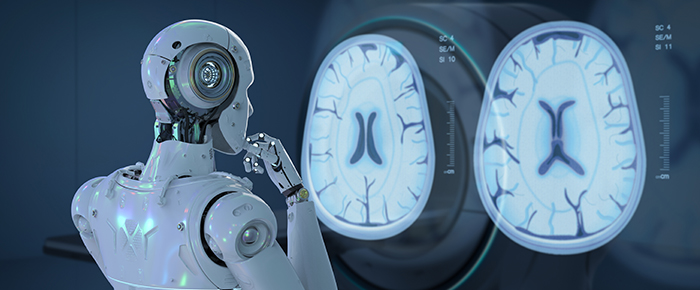
AI Revolutionizes Medical Diagnosis with Precision MedicineAI Revolutionizes Medical Diagnosis with Precision Medicine Artificial intelligence (AI) is transforming the healthcare landscape, and its impact on medical diagnosis is particularly profound. Precision medicine, a data-driven approach to healthcare, harnesses the power of AI to personalize medical care for each patient, leading to more accurate and effective diagnoses. Enhanced Pattern Recognition AI algorithms can analyze vast amounts of medical data, including patient histories, lab results, and imaging scans, to identify patterns that human clinicians might miss. These algorithms process data at lightning speed, detecting subtle changes that may signal a disease or condition. Predictive Modeling AI can predict the likelihood of a patient developing a disease based on their genetic makeup, lifestyle, and environmental factors. This predictive modeling enables early detection and proactive intervention, preventing the disease from progressing. Personalized Treatment Plans By combining AI-enabled diagnostics with genetic information, clinicians can develop highly personalized treatment plans. AI algorithms can predict how a patient’s body will respond to different treatments, optimizing drug selection and dosage. Benefits of Precision Medicine with AI * Improved accuracy: AI algorithms can reliably detect subtle abnormalities that may evade human perception. * Earlier detection: Predictive modeling allows for early identification of diseases, increasing the chances of successful treatment. * Personalized care: AI-powered diagnostics enable clinicians to tailor treatment plans to each patient’s unique characteristics. * Cost savings: By optimizing treatment plans, AI can reduce unnecessary testing and medication, saving time and money. * Advancements in research: AI facilitates large-scale data analysis and clinical trials, accelerating the discovery of new medical knowledge. Adoption and Challenges Precision medicine with AI is rapidly being adopted in clinical practice. However, challenges remain, including: * Data privacy and security: AI algorithms require massive amounts of sensitive patient data, raising concerns about privacy and security. * Bias and accuracy: AI algorithms can be biased if trained on incomplete or inaccurate data. * Ethical implications: AI-powered diagnostics have ethical implications, such as the potential for misdiagnosis and the need for transparent decision-making. Conclusion AI is revolutionizing medical diagnosis by enabling precision medicine. Its ability to detect diseases earlier, personalize treatment plans, and facilitate advancements in research has the potential to transform healthcare delivery and improve patient outcomes. As AI technology continues to evolve, it is essential to address the challenges and ethical considerations to fully harness its potential in the diagnosis and treatment of diseases.
Posted inNews